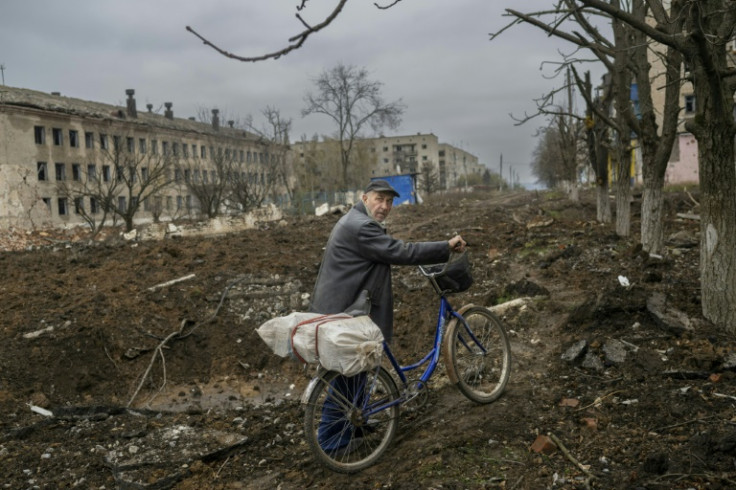Ukraine Accuses Russia Of Using Banned Soviet-Era Chemical Grenades
KEY POINTS
- Russia developed the K-51 grenade for riot control and counter-insurgency operations in late 1970s
- This is not the first time Ukraine has accused Russia of using banned chemical munition in war
- The 1925 Geneva Protocol prohibits the use of chemical and biological weapons in war
As Putin's war in Ukraine drags into the tenth month, Kyiv has once again accused Russia of using banned chemical weapons against troops fighting in its eastern parts.
The Ukrainian military accused Russian forces of dropping Soviet-era K-51 tear gas grenades that allegedly contained the chemical compound chloropicrin from drones in the eastern parts of the country.
"To protect themselves from the strong irritant effect of the prohibited ammunition, the marines held their positions wearing chemical protective gear," the Kyiv Independent reported, citing a Telegram post by the Ukrainian military.
The 1925 Geneva Protocol prohibits the use of chemical and biological weapons in war.
Russian troops used chemical weapons against Ukrainian soldiers
— Euromaidan Press (@EuromaidanPress) December 4, 2022
The invaders used Soviet-made K-51 tear gas grenades & dropped grenades containing chloropicrin from a drone in the eastern part of the country - Ukrainian Navy https://t.co/vQ4nWNXXvB pic.twitter.com/1nDSyWzbo4
Russia developed the K-51 grenade for riot control and counter-insurgency operations in the late 1970s. It is made up of a plastic body fitted with a metal bottom filled with a powdered, highly irritating non-lethal substance, reportedly CS gas (2-chlorobenzylidene malononitrile), which is one of the most commonly used tear gases in the world.
However, highly concentrated formulas that are combined with other chemical compounds such as the lung-damaging agent chloropicrin can have more serious and lasting effects. The impact of the K-51 grenade can therefore be several times greater than that of a demonstrator dispersal grenade, as it was designed for the military and special services. The K-51 grenade burns for 16 seconds, producing thick smoke. It can cause eye irritation and breathing difficulties.
This is not the first time that Ukraine has accused Russia of using banned chemical munition in war. In November, Ukraine's State Border Guard Service said Russian forces dropped the banned K-51 aerosol grenades on troops in the Donetsk region.
In early October, Ukraine's General Staff accused Russian forces of using hand grenades with chemical agents against Ukrainian troops in the Zaporizhzhia region. Similar allegations were also made in September. Russia was also accused of using prohibited phosphorus bombs against Ukrainians.
Last month, the U.S. expressed concerns Moscow could resort to using chemical weapons in Ukraine if Russian troops continue to lose ground, reported Politico. However, Washington did not have the intelligence to suggest that such an attack in Ukraine was imminent.
Similar fears were expressed by the Organization for the Prohibition of Chemical Weapons (OPCW). The organization said Russia's invasion of Ukraine increased the threat from weapons of mass destruction, including chemical munitions.

© Copyright IBTimes 2024. All rights reserved.












